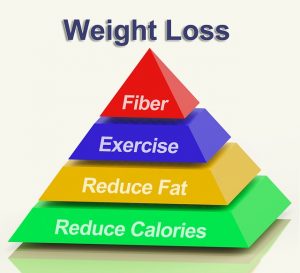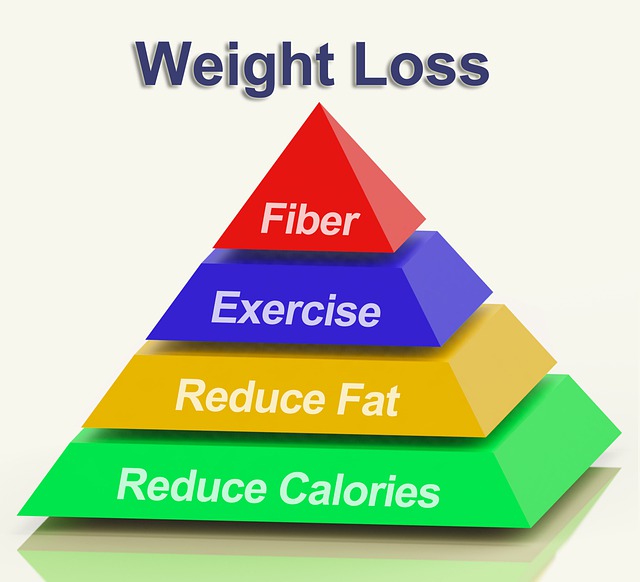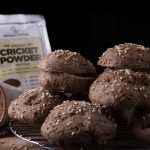Are you tired of fad diets and yo-yoing weight loss? Have you been searching for a more sustainable approach to shedding those extra pounds? Look no further than holistic nutrition.
By nourishing your body with whole, nutrient-dense foods and addressing emotional and mental factors that may contribute to weight gain, holistic nutrition offers a natural and effective way to achieve lasting weight loss.
Holistic nutrition approaches the body as a whole system, taking into account not only what you eat but also how your lifestyle, emotions, and environment impact your overall health. The goal is not just to lose weight but to optimize your well-being in all areas of life.
By incorporating natural supplements and creating sustainable lifestyle changes tailored to your individual needs, you can achieve long-term success in achieving your ideal weight without sacrificing your health or happiness.
In this article, we will explore the benefits of holistic nutrition for weight loss and provide tips and tricks on how you can implement this approach into your daily life.
The Benefits of Holistic Nutrition for Weight Loss
 You’ll discover the amazing advantages of nourishing your body with whole, nutrient-dense foods for shedding excess weight and achieving optimal health.
You’ll discover the amazing advantages of nourishing your body with whole, nutrient-dense foods for shedding excess weight and achieving optimal health.
Holistic nutrition focuses on fueling your body with natural, unprocessed foods that provide essential vitamins, minerals, and fiber. Mindful eating is a key component of this approach to weight loss. By paying attention to your body’s hunger cues and choosing foods that nourish you, rather than simply satisfy cravings, you can reduce overeating and promote healthy weight loss.
Another important aspect of holistic nutrition for weight loss is gut health. A healthy gut microbiome supports digestion and nutrient absorption while reducing inflammation in the body. This makes it easier for your body to process food efficiently and maintain a healthy weight.
Incorporating probiotic-rich foods like yogurt or kefir can help support a healthy gut while also promoting feelings of fullness and reducing sugar cravings. By prioritizing both mindful eating and gut health through whole food choices, you can achieve sustainable weight loss results while also supporting overall wellness.
Nourishing Your Body with Whole Foods
To nourish your body with whole foods, focus on incorporating colorful fruits and vegetables, lean proteins, and healthy fats into your meals. Meal planning is an excellent way to ensure that you are consuming nutrient-dense options that will fuel your body for weight loss success.
Start by making a list of fresh produce, such as leafy greens, berries, sweet potatoes, and avocados. Next, choose lean protein sources like chicken breast or fish to add to your meals. Healthy fats are also essential for weight loss and overall health. Incorporate olive oil, nuts and seeds, and fatty fish like salmon into your diet to reap the benefits of these healthy fats.
By focusing on whole foods that nourish your body with essential nutrients while still being deliciously satisfying, you’ll find it easier to stick to a healthy eating plan while shedding those extra pounds. Incorporating nutrient-dense options into your daily routine can make all the difference when it comes to achieving long-term weight loss goals.
Aim to fill at least half of each meal with colorful fruits and vegetables while balancing out the rest with lean proteins and healthy fats. Not only will this help you feel fuller longer but also provide your body with vital nutrients needed for optimal health. Remember that small changes can lead to big results in the long run – start by adding one or two new whole food choices each week until you have built up a nutrient-packed meal plan that works for you!
Addressing Emotional and Mental Factors in Weight Loss
When it comes to shedding weight, addressing the emotional and mental factors is like peeling back the layers of an onion – there are many different facets that need to be uncovered and dealt with.
One crucial aspect is mindful eating, which means paying attention to your body’s hunger and fullness signals while also being aware of the emotions that may drive you to eat. This approach allows you to make conscious choices about what you put in your body rather than mindlessly consuming food as a way of coping with stress or other negative feelings.
Another important factor in weight loss is stress management. Chronic stress can lead to increased levels of cortisol, a hormone that can cause weight gain and even contribute to obesity. To manage stress effectively, consider incorporating activities like yoga, meditation, or deep breathing into your daily routine. These practices can help reduce anxiety, improve sleep quality, and promote overall well-being – all essential components for achieving long-term weight loss success.
Remember that managing your emotional and mental health is just as important as nourishing your body with whole foods if you want to achieve sustainable results on your weight loss journey.
- Take time each day for self-reflection and journaling.
- Incorporate physical activity into your routine (even if it’s just going for a walk).
- Connect with supportive friends or family members who understand your goals.
Incorporating Natural Supplements into Your Diet
Incorporating natural supplements into your diet can be a beneficial addition to support overall health and wellness on your weight loss journey.
Herbal remedies such as green tea, ginger, and cayenne pepper have been found to aid in digestion, boost metabolism, and reduce inflammation – all of which can contribute to weight loss.
Green tea is particularly effective due to its high levels of antioxidants and caffeine content. These compounds work together to increase fat oxidation and improve insulin sensitivity.
Another way to incorporate natural supplements into your diet is by adding superfoods like chia seeds, spirulina, and maca powder.
Chia seeds are rich in fiber which helps you feel full longer while reducing cravings for unhealthy snacks.
Spirulina is a blue-green algae that’s packed with nutrients like protein, vitamins B1-3, iron, potassium, magnesium and copper – all essential for maintaining good health.
Lastly, maca powder is known for its adaptogenic properties that help the body cope with stress while also balancing hormones naturally.
By integrating herbal remedies and superfoods into your diet plan along with regular exercise and healthy eating habits, you can optimize your weight loss efforts naturally without relying on synthetic drugs or fad diets.
Remember that it’s important to consult a healthcare professional before starting any new supplement regimen, especially if you’re taking medications or have pre-existing health conditions.
Creating Sustainable Lifestyle Changes for Long-Term Success
Picture yourself making small, sustainable lifestyle changes that align with your goals and values, allowing you to maintain a healthy and fulfilling life in the long term.
It’s not about depriving yourself of the foods you love or pushing your body to extremes with grueling exercise routines. Instead, it’s about adopting mindful eating habits and incorporating physical activity into your daily routine in a way that feels enjoyable and sustainable.
To achieve long-term success, start by focusing on small changes that you can realistically maintain over time. Here are three sub-lists to help you paint a picture for how to create sustainable lifestyle changes:
Mindful Eating:
- Start by tuning into your hunger cues and only eating when you’re truly hungry.
- Slow down during meals and savor each bite, paying attention to the flavors and textures of the food.
- Choose whole foods that nourish your body and make you feel good instead of relying on processed snacks or fast food.
Exercise Routines:
- Find physical activities that you enjoy, whether it’s yoga, dancing, hiking, or swimming.
- Incorporate movement into your daily routine by taking the stairs instead of the elevator or going for a walk after dinner.
- Set achievable fitness goals for yourself and track your progress over time, celebrating each milestone along the way.
By making small but significant changes in these areas of your life, you’ll be well on your way to creating healthy habits that will last a lifetime.
Remember to be patient with yourself as change takes time, but with consistency and dedication, you’ll see lasting results both inside and out!
Are there any specific exercises or workouts that complement holistic nutrition for weight loss?
Yoga and Pilates are excellent exercises that complement high intensity interval training (HIIT) when paired with holistic nutrition for weight loss.
Both yoga and pilates focus on toning and strengthening muscles while also improving flexibility, balance, and overall body awareness. These low-impact workouts can be done at home or in a class setting to help you burn calories, build muscle, and reduce stress levels.
HIIT is another great option for those looking to lose weight quickly as it involves short bursts of intense exercise followed by brief rest periods. This type of workout increases your heart rate, burns fat, and improves cardiovascular health.
When combined with a holistic nutrition plan that includes whole foods like fruits, vegetables, lean proteins, and healthy fats, you can achieve your weight loss goals naturally and sustainably.
Can holistic nutrition be effective for people with certain medical conditions or dietary restrictions?
If you have dietary limitations or certain medical conditions, holistic nutrition can still be an effective approach to weight loss. By focusing on whole foods and alternative approaches, such as herbal supplements and acupuncture, you can work with your body to achieve optimal health and shed unwanted pounds.
It’s important to consult with a healthcare professional before making any significant changes to your diet or lifestyle. With their guidance, you can create a personalized plan that takes into account your unique needs and restrictions.
Remember that even small changes can make a big difference in your overall health and well-being.
How can I ensure I am getting all the necessary nutrients and vitamins from a holistic diet?
Balancing macronutrients and meal planning are key to ensuring that you get all the necessary nutrients and vitamins from a holistic diet.
Protein, carbohydrates, and healthy fats make up the three macronutrients that your body needs to function properly.
A balanced intake of these macronutrients is essential for maintaining good health, managing weight, and preventing chronic diseases.
Meal planning helps ensure that you consume a variety of nutrient-dense foods from each food group in the right amounts.
By incorporating whole foods into your meals, such as fruits, vegetables, nuts, seeds, legumes, and lean proteins like chicken or fish, you can optimize your nutrient intake while satisfying your hunger cravings.
With a little bit of effort in balancing macronutrients and meal planning, you can easily meet all your nutritional needs on a holistic diet.
Are there any potential side effects or risks associated with incorporating natural supplements into my diet?
As you consider adding natural supplements to your diet, it’s important to be aware of potential risks and effectiveness concerns. While some supplements may offer benefits, others can have negative side effects or interactions with other medications.
It’s always wise to consult with a healthcare professional before starting any new supplement regimen. With their guidance, you can make informed choices that support your overall health and wellness goals.
Remember that incorporating supplements is just one piece of the puzzle when it comes to achieving optimal nutrition and weight loss – a holistic approach that includes balanced meals, regular exercise, and stress reduction is key for long-term success.
Can holistic nutrition help with weight loss plateaus or stubborn areas of body fat?
If you’ve hit a weight loss plateau or are struggling with stubborn areas of body fat, holistic remedies may be able to help.
Natural approaches like incorporating more fiber into your diet, increasing your water intake, and practicing stress-reducing techniques like yoga or meditation can all aid in weight loss.
Additionally, certain herbs such as green tea and cinnamon have been shown to support weight loss efforts.
However, it’s important to remember that these remedies should be used in conjunction with a healthy diet and exercise routine for the best results.
By taking a holistic approach to weight loss, you can empower yourself to make sustainable lifestyle changes and achieve your goals.
Congratulations on taking the first step towards a healthier you. By incorporating holistic nutrition into your weight loss journey, you’re setting yourself up for long-term success.
Remember, this isn’t a quick fix or a crash diet, but rather a lifestyle change that’ll nourish your body and mind.
One example of the power of holistic nutrition is Sarah. She’d been trying to lose weight for years with no luck. She tried every fad diet and exercise program out there but always ended up back where she started.
Finally, she decided to take a holistic approach and began nourishing her body with whole foods. She also addressed the emotional factors that were holding her back. Within six months, Sarah had lost 30 pounds and was feeling better than ever before.
By focusing on nourishing your body with whole foods, addressing emotional and mental factors, incorporating natural supplements into your diet, and creating sustainable lifestyle changes for long-term success, you too can achieve your weight loss goals.
Remember to be patient with yourself as this is a journey that takes time. But with dedication and commitment to living a healthy lifestyle, anything is possible.









